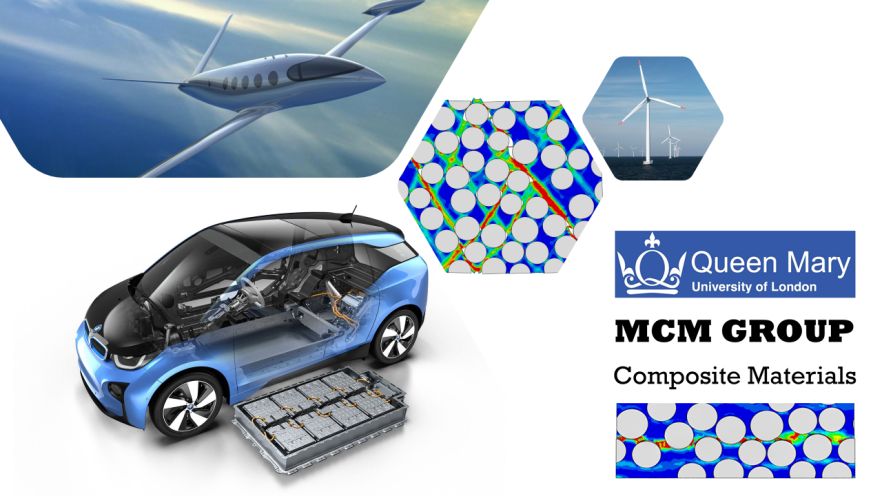Speaker: Dr Wei Tan
Time: 14:00-16:00, 28 May 2025
Location/Room: Engineering Central, B003 (Bay Campus)
Lightweight composite and porous architected materials are pivotal enablers of the global transition to net-zero emissions, offering transformative potential across sectors such as transportation, aerospace, and renewable energy. By reducing structural weight while maintaining performance, these materials minimise energy consumption and carbon footprints. However, their design and optimisation are challenged by vast design spaces, complex nonlinear behaviours, and multiphysical interactions inherent to advanced composites. This talk explores innovative strategies to overcome these barriers through three interconnected research approaches. First, analytical inverse design is presented as a framework for morphing materials, enabling tailored mechanical responses through programmable architectures. Second, computational mechanics tools, such as phase field modelling, are discussed for predicting the fracture behaviour in composites and extending to dynamic scenarios like fluid-solid interaction. Third, AI-driven methods are highlighted for inverse design under multiphysics constraints, accelerating the discovery of high-performance materials. Collectively, these approaches demonstrate how integrating mechanics-based insights with AI can unlock unprecedented efficiency and functionality in lightweight materials. The talk concludes by emphasising that the synergy of mechanics and AI is not merely advantageous but essential for engineering sustainable materials at the speed and scale required to achieve a net-zero future.
For more info contact: Dr Mokarram Hossain (mokarram.hossain@swansea.ac.uk)
Speaker Summary:
Dr Wei Tan is a Reader in Mechanics of Materials at Queen Mary University of London. His research focuses on experimental characterisation, computational modelling under extreme conditions, and AI-driven optimisation of lightweight composites and architected materials. He has published over 50 papers with approximately 2,500 citations (H-index 22, Google Scholar) and secured around £1.8m in research funding as PI, including an ERC Starting Grant/UKRI Frontier Research, EPSRC New Investigator Award, and Royal Society Research Grant. He has received several awards, including the 2024 ESCM Young Researcher Award, Cambridge CAPE BlueSky Research Award, and Royal Aeronautical Society Bronze Award, and delivered over 20 invited talks (e.g. ECCM21 Plenary, Cambridge, Oxford, Imperial). He was listed among the World’s Top 2% Scientists by Stanford University in 2023 and 2024.

